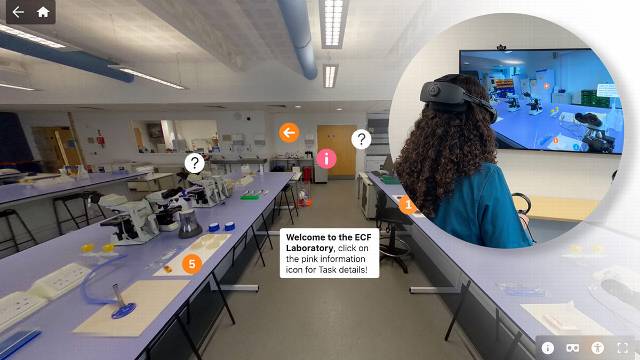
Now, more than ever, food security is of vital importance. We seek to provide sustainable and nutritious food throughout the supply chain, supporting British farming and the agricultural industry. Along with this, stopping food waste is part of our mission to be more sustainable.
As today is Stop Food Waste Day, David Nuttall, catering manager at Harper Adams, shared with us the work the catering team have been doing to minimise food waste along with the resources they are now providing to those still on campus.
“We practice what we teach here at Harper,” David commented. “Every facet of our catering operation scrutinises how we can source more locally - including our onsite farm - and how to reduce volumes of food produced, whilst maintaining an excellent standard to exceed student and customer expectations.
“We work as an in house catering operation running four outlets across the campus, including the dining room for, usually, 400 catered students. The department also caters for staff and external functions in typical circumstances. To be sustainable and meet these demands, we have a number of initiatives to reduce our environmental impact.”
The food waste policy on campus has two simple aims: to reduce volumes of food waste and ensure food waste is separated from general waste. To meet these objectives, the team put a plan into motion.
Food waste at the university is separated from the general waste into two different coloured bins – green for plate waste and yellow for kitchen waste. The waste collector sends weekly reports on food waste amounts which is split into plate waste and kitchen waste. This allows the catering team to monitor where more of the waste is coming from to better communicate the message of reducing food waste to those individuals.
In response to this data, one initiative the team have developed is the leftover food scheme. This is where, after the evening dinner service, any leftover food which cannot be reused is available to students to takeaway for free. Not only do the students love the free food, it means there is a reduced amount of waste overall.
Opposing this, there is a tendency with catered students to take more than they really need, especially as they have already paid for their meal due to the servery design. This increased food waste can be impactful to the environment but is hard to visualise. Therefore, the team uses a poster displaying the amount of plate waste for the previous week, converting this number into how many plates of food that accumulates. Seeing this visual hopefully encourages people to take only what they really need (and to go back for free seconds later)!
Should students take heed of these figures, staff are then able to reduce the amount they cook. In the refectory, there is a device to record the number of students who have come through in that service so far. This allows the chefs to know how many people they still have to cater for, allowing them to better judge how much food to cook.
As these initiatives come together, it is hoped that the team can significantly reduce volumes of food waste to ultimately reach their sustainability goals. Alongside reusable cups, sourcing of food, and energy consumption, the catering department works hard to incorporate sustainability into all they do.
Even now, the team is working hard to provide food parcels to those still on campus, helping support remaining students and reduce food waste through portioned parcels. To keep up to date on the continued work of the catering department, you can follow them on Twitter here.
 Blog: Veterinary Medicine students step into immersive 360° laboratory
At Harper & Keele Veterinary School, students are stepping beyond the traditional microbiology bench and into an immersive 360° labo …
Posted
Yesterday
Blog: Veterinary Medicine students step into immersive 360° laboratory
At Harper & Keele Veterinary School, students are stepping beyond the traditional microbiology bench and into an immersive 360° labo …
Posted
Yesterday





